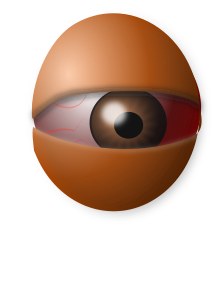If ever Americans sell their birthright, it will be for the promise of expediency and comfort delivered by way of blazingly fast Internet, cell phone signals that never drop a call, thermostats that keep us at the perfect temperature without our having to raise a finger, and entertainment that can be simultaneously streamed to our TVs, tablets and cell phones.
Likewise,
if ever we find ourselves in bondage, we will have only ourselves to blame for
having forged the chains through our own lassitude, laziness and abject
reliance on internet-connected gadgets and gizmos that render us wholly
irrelevant.
Indeed,
while most of us are consumed with our selfies and trying to keep up with what
our friends are posting on Facebook, the megacorporation Google has been busily
partnering with the National
Security Agency (NSA), the Pentagon,
and other governmental agencies to develop a new "human" species.
In
other words, Google--a neural network that approximates a global brain--is fusing
with the human mind in a phenomenon that is called "singularity," and they've
hired transhumanist scientist Ray Kurzweil to do just that. Google will know
the answer to your question before you have asked it, Kurzweil said. "It
will have read every email you will ever have written, every document, every
idle thought you've ever tapped into a search-engine box. It will know you
better than your intimate partner does. Better, perhaps, than even yourself."
But
here's the catch: the NSA and other government agencies will also know you
better than yourself. As William Binney, one of the highest-level whistleblowers
to ever emerge from the NSA said, "The
ultimate goal of the NSA is total population control."
Science fiction, thus, has become fact.
We're fast approaching Philip K. Dick's vision of
the future as depicted in the film Minority
Report. There, police agencies
apprehend criminals before they can commit a crime, driverless cars populate
the highways, and a person's biometrics are constantly scanned and used to
track their movements, target them for advertising, and keep them under perpetual
surveillance.
Cue
the dawning of the Age of the Internet of Things, in which internet-connected
"things" will monitor your home, your health and your habits in order to keep
your pantry stocked, your utilities regulated and your life under control and
relatively worry-free.
The
key word here, however, is control.
In
the not-too-distant future, "just
about every device you have -- and even products like chairs, that you don't
normally expect to see technology in -- will be connected and talking to each
other."
This
"connected" industry--estimated to add more than $14
trillion to the economy by 2020--is about to be the next big thing in terms
of societal transformations, right
up there with the Industrial Revolution, a watershed moment in technology
and culture.
Between
driverless cars that completely lacking a steering wheel, accelerator, or brake
pedal, and smart pills embedded with computer chips, sensors, cameras and
robots, we are poised to outpace the imaginations of science fiction writers
such as Philip K. Dick and Isaac Asimov.
The
2015
Consumer Electronics Show in Las Vegas is a glittering showcase for such Internet-connected
techno gadgets as smart
light bulbs that discourage burglars by making your house look occupied, smart
thermostats that regulate the temperature of your home based on your
activities, and smart
doorbells that let you see who is at your front door without leaving the
comfort of your couch.
Nest,
Google's $3 billion acquisition, has been at the forefront of the "connected"
industry, with such technologically
savvy conveniences as a smart lock that tells your thermostat who is home,
what temperatures they like, and when your home is unoccupied; a home phone
service system that interacts with your connected devices to "learn when you
come and go" and alert you if your kids don't come home; and a sleep system
that will monitor when you fall asleep, when you wake up, and keep the house
noises and temperature in a sleep-conducive state.
It's not just our homes that are being reordered and reimagined in this connected age: it's our workplaces, our health systems, our government and our very bodies that are being plugged into a matrix over which we have no real control.
(Note: You can view every article as one long page if you sign up as an Advocate Member, or higher).






